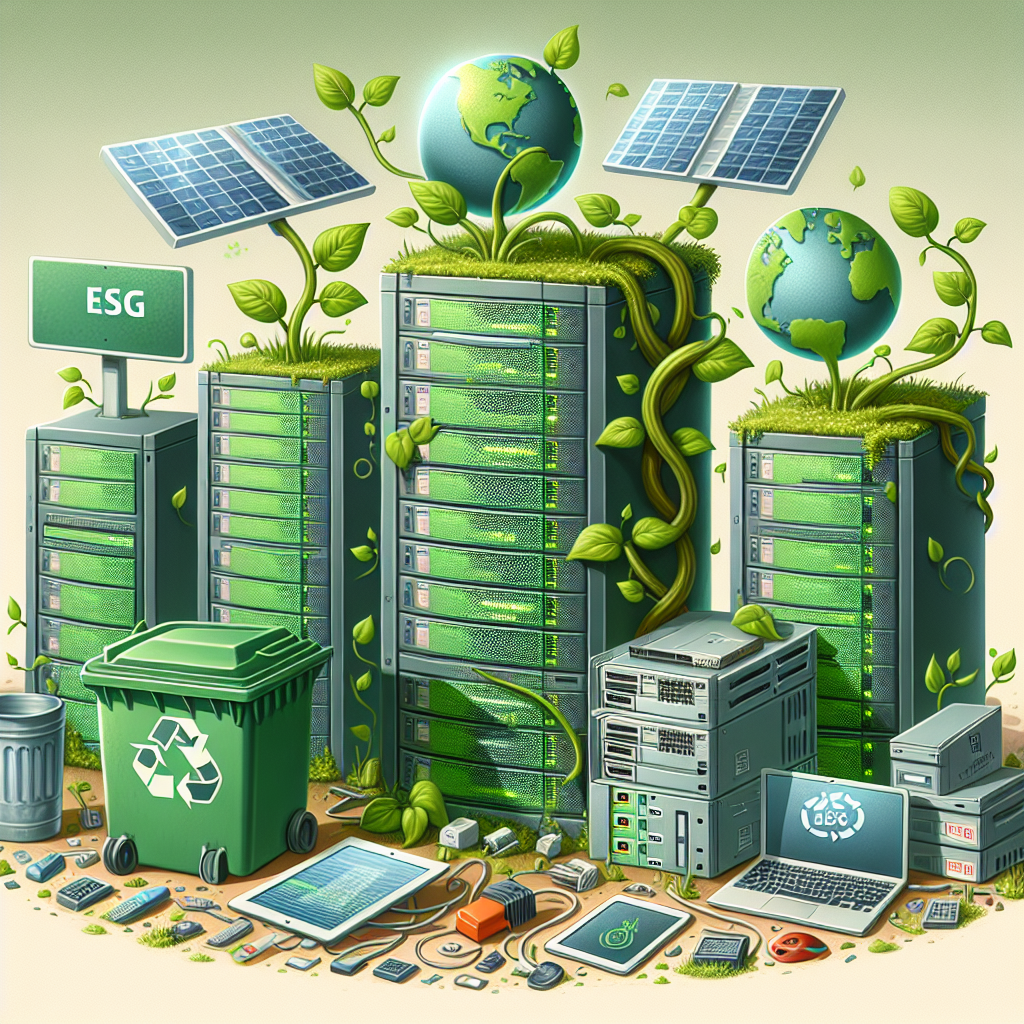Blog Ecobraz Eigre

Green IT management: ESG practices applied to technology
Introduction to Green IT Management
Incorporating ESG (Environmental, Social and Governance) practices into information technology management is fundamental for organizational sustainability and regulatory compliance. Green IT management seeks to minimize environmental impacts, optimize resources and guarantee data and device security, in line with current regulations.
Energy Efficiency and Consumption Reduction
The energy consumption of technological equipment represents one of the biggest environmental challenges in IT operations. Implementing energy efficiency policies, such as the use of low-consumption servers and virtualization policies, contributes substantially to reducing the carbon footprint. Technical standards, such as NR 10 (Safety in Electrical Installations and Services) and recommendations from the National Institute of Metrology, Quality and Technology (Inmetro), guide energy efficiency and safety practices.
Electronic Waste Management
The generation of technology waste requires special attention as to its environmentally appropriate disposal. Brazilian legislation, detailed in Law No. 12.305/2010, establishes the National Solid Waste Policy, including provisions for the correct handling of these materials. The collection of electronic waste must comply with certified procedures and can be carried out through specialized services, such as the scheduling available on the Ecobraz Eletrônicos portal. This approach ensures proper treatment of the material, avoiding environmental contamination and promoting recycling.
Secure Sanitization of Storage Devices
Ensuring data security is a mandatory requirement in green IT management. The safe disposal of information stored on drives such as hard disks or other media is regulated by technical standards and norms, ensuring privacy and protection against leaks. Specialized services for hard drive sanitization can be found by appointment at Ecobraz Hard Drive Sanitization, which follow protocols according to the criteria of NIST Special Publication 800-88, issued by the National Institute of Standards and Technology.
Sustainable IT Governance and Compliance
The effective adoption of green IT requires clear internal policies and guidelines compatible with organizational IT governance. The implementation of risk-based management and regulatory compliance frameworks contributes to alignment with regulatory requirements and ESG best practices. Legislative instruments prioritize responsibility and accountability, reducing legal risks and promoting operational integrity.
Conclusion
Sustainable practices applied to technology management are essential in today's context of environmental responsibility and governance. The implementation of measures such as energy efficiency, proper waste management and secure data sanitization underpin the commitment to the ESG Agenda, promoting environmental, social and governance benefits, in compliance with current legislation.

Deixe um comentário
O seu endereço de e-mail não será publicado. Campos obrigatórios são marcados com *